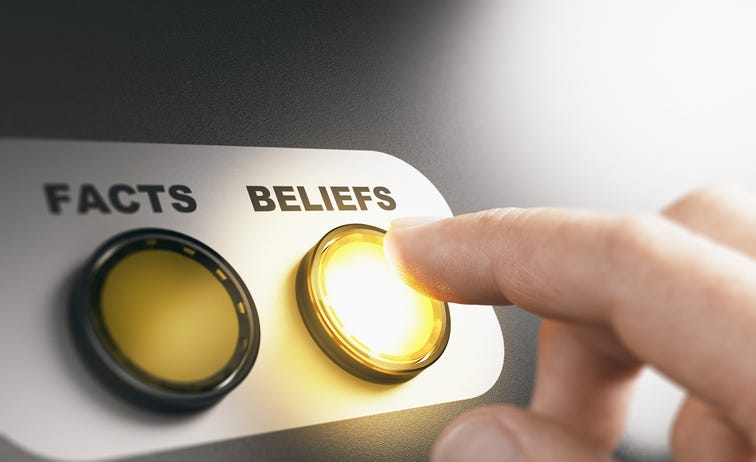Confirmation Bias, A Distorted Way of Thinking
"Never let the truth get in the way of a good story." Mark Twain
Colorado and the nation just faced another mass shooting when a gun-carrying man entered a nightclub for LBGTQ people, shot and killed five people, and seriously injured many more. Shootings happen only with gay and transgender people, but with Jewish, Black, Asian, and Native Americans and are repeated worldwide.
Confirmation Bias and Conspiracy Theories:
Confirmation Bias happens when people believe what they want to believe. This bias is the tendency to interpret or remember information that confirms what we already believe and helps us ignore new data.
The most famous example of cognitive bias involves those who believe in former President Trump when he asserts that the presidential election was rigged against him. He continues to make this assertion in the absence of any evidence. In addition, many people are convinced he is correct despite repeated investigations that failed to find a shred of evidence to support this belief.
Imagine that you have tried to reach a friend with whom you have an ambivalent relationship by phone or email, leaving messages, yet receiving no call in return. In a situation like this, it is easy to jump to conclusions intuitively that your friend wants to avoid you. The danger, of course, is that you leave this belief unchecked and act as though it were true.
Is bias stereotyping?
Bias is defined as prejudice in favor of or against one thing, person, or group compared with another, usually in a way considered unfair. Bias can be seen as the overarching definition of stereotype and prejudice because it is how we associate traits (usually negative) with a specific group of people. The term "stereotyping enters the discussion when people look for evidence to support their stereotypical or prejudicial beliefs about others. Confirmation bias and stereotyping are made more complex by conspiracy theories.
Conspiracy Theories
One example of a conspiracy theory is the belief powerful world governments created COVID-19 to make money selling vaccines. Another conspiracy theory is that China created and spread the COVID virus as part of germ warfare to destroy the West. These examples are called conspiracy theories because there is no evidence or reason to suggest they are correct. Yet, despite this, conspiracy theories are becoming more popular.
Confirmation bias occurs in the absence of factual information and then perpetuates itself. When people would like a specific idea or concept to be accurate, they believe it to be true. They are motivated by wishful thinking. This error leads the individual to stop gathering information when the evidence confirms the views or prejudices one would like to be true.
Once we have formed a view, we embrace information that confirms that view while ignoring or rejecting information that casts doubt. Confirmation bias suggests that we don't perceive circumstances objectively. We pick out those bits of data that make us feel good because they confirm our prejudices. Thus, we may become prisoners of our assumptions. For example, some people will have a powerful inclination to dismiss any claims that marijuana may cause harm as nothing more than old-fashioned reefer madness. Some social conservatives will downplay any evidence that marijuana does not cause harm.
Confirmation bias, anxiety, and self-deception
Confirmation bias can also be found in anxious individuals who view the world as dangerous. You interpret neutral behavior as indicative of something negative. For example, a person with low self-esteem is highly sensitive to being ignored by others and constantly monitors for signs that people might not like them. Thus, if you are worried that someone is annoyed with you, you are biased toward all the negative information about how that person acts toward you.
Wishful thinking is self-deception, such as false optimism. For example, we often deceive ourselves by stating: I'll eat just this one candy; it's not that fattening; I'll stop smoking tomorrow. Or when someone believes it is safe to drive.
Self-deception can be like a drug, numbing people from harsh reality and ignoring gathering evidence and thinking.
People believe what they want to believe. Seeking to confirm our beliefs comes naturally while looking for evidence that contradicts our beliefs feels solid and counterintuitive. Seeking to confirm already held beliefs explains why opinions survive and spread. Disconfirming instances are far more powerful in establishing the truth. Disconfirmation would require looking for evidence to disprove it
.




